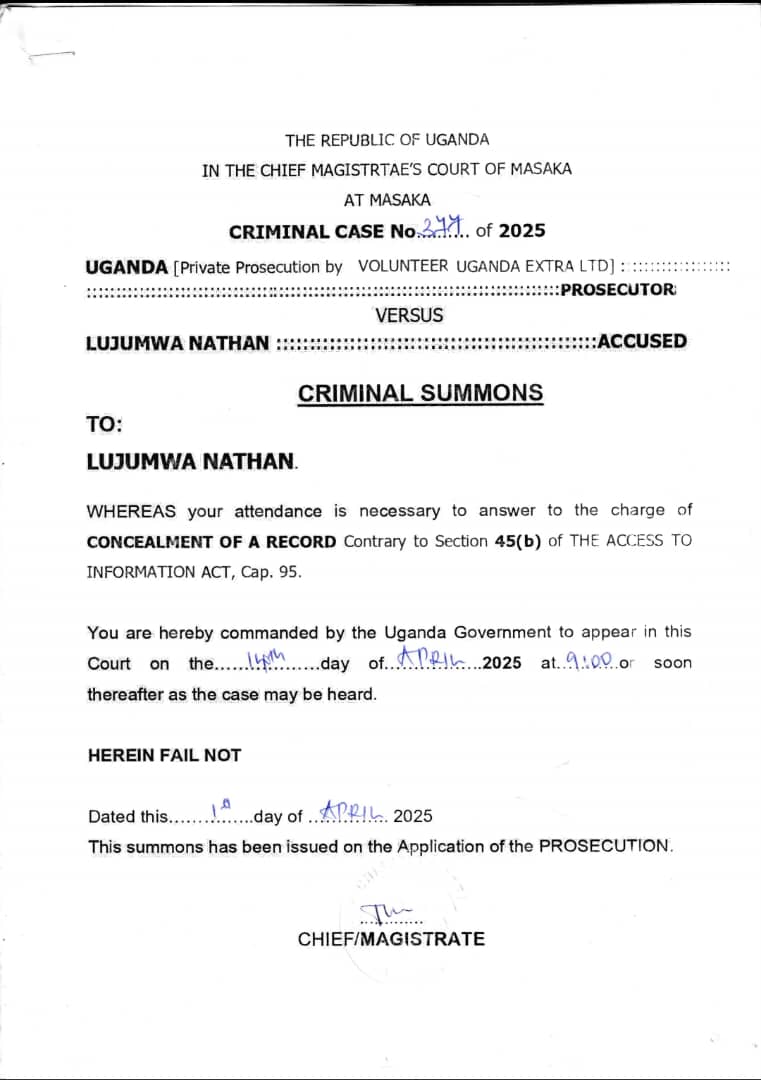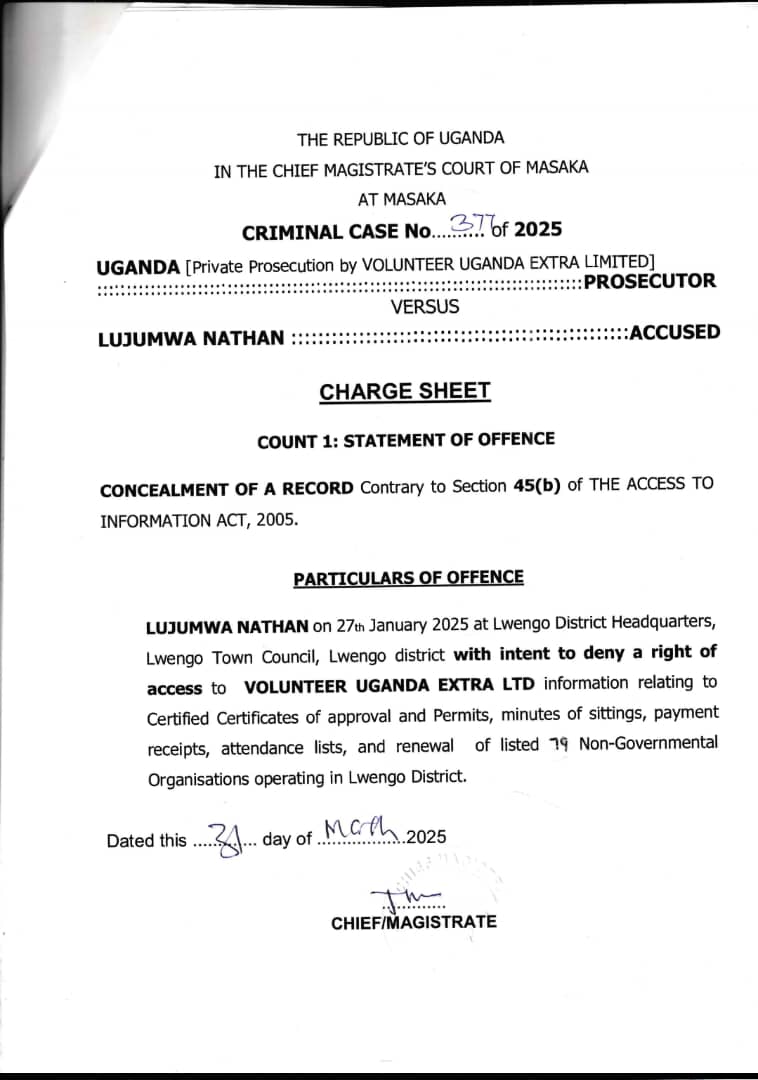By Our Reporter

Lwengo’s Chief Administrative Officer (CAO) Lujumwa Nathan is set to appear before the Chief Magistrate’s Court in Masaka on April 14, 2025, after being criminally charged with concealment of a record — a serious offense under Section 45(b) of the Access to Information Act, 2005.
The charges stem from a private prosecution by Volunteer Uganda Extra Ltd, a prominent civil society organization advocating for transparency and human rights in Uganda and headquartered in Lwengo. The NGO accuses Lujumwa of intentionally denying access to key documents, a move they believe may be shielding ongoing corruption within the district.
According to the official charge sheet (Criminal Case No. 377 of 2025), Lujumwa on January 27, 2025, “with intent to deny a right of access to Volunteer Uganda Extra Ltd,” concealed information including “certified certificates of approval and permits, minutes of sittings, payment receipts, attendance lists, and renewal of listed NGOs operating in Lwengo District.”
In a related criminal summons dated April 1, 2025, the court commands Lujumwa to appear in person and face the allegations, warning: “HEREIN FAIL NOT.”
Suspected Shield For Deeper Scandals
Activists have expressed concern that Lujumwa’s actions may be part of a broader scheme to hide decades-long corruption scandals that have paralyzed service delivery in Lwengo.
“Denying access to documents is not just a technical issue—it raises red flags,” said an activist on condition of anonymity, “What exactly is being hidden? Why block records if everything is clean?”

The case has ignited public anger across Lwengo, with locals demanding accountability and questioning how many more files may have been hidden to protect entrenched interests.
The Law Speaks
The Constitution of the Republic of Uganda, 1995 (as amended) guarantees access to information and provides legal grounds against the concealment of public information.
Here are the key constitutional provisions related to access to information and the implications of concealing public records:
Article 41 – Right of Access to Information
(1) Every citizen has a right of access to information in the possession of the State or any other organ or agency of the State except where the release of the information is likely to prejudice the security or sovereignty of the State or interfere with the right to the privacy of any other person.
This article makes it a constitutional right for citizens to access information held by public bodies—and any denial or concealment of such information may be a violation of this constitutional right, unless it’s a matter of national security.
To give effect to Article 41, Parliament passed the:
Access to Information Act, 2005
Specifically:
Section 45(b): Offences related to records
A person commits an offence if they knowingly conceal a record which is required to be made available under this Act.
Conviction under this section can result in criminal penalties, including fines or imprisonment;
- The Constitution ensures every Ugandan citizen has the right to access public information.
- Concealment of public records without legal justification is a violation of the Constitution and an offence under the Access to Information Act, 2005.
- Such acts not only undermine transparency but can also shield corruption, abuse of office, or neglect of duty—as may be the case in Lwengo District.

